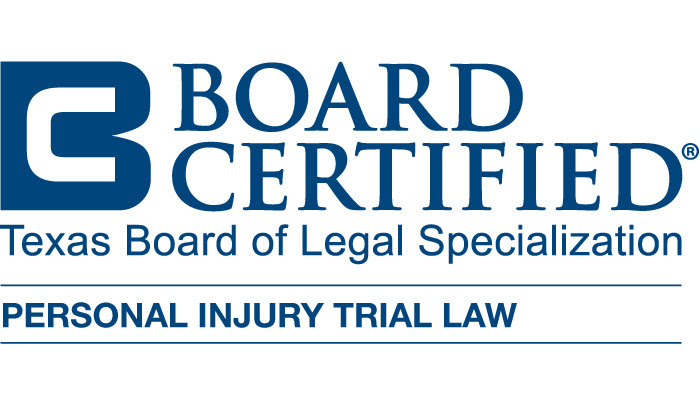Losing a loved one due to someone else’s actions can be devastating. Families are left not only with emotional pain but also with financial burdens that follow such a loss. When the cause of death is another person’s negligence or intentional misconduct, families in Texas may seek justice through a wrongful death claim. However, it is essential to understand that there are time limits when filing these claims. These time limits, known as statutes of limitations, can have a significant impact on the family’s ability to pursue justice and receive compensation. In this guide, we will explore the statute of limitations for wrongful death claims in Texas, the importance of acting within this timeframe, and the consequences of missing the deadline. At, Willumsen Law Firm, P.C. , we are here to guide you through the legal process and help you navigate the complexities of your case.


What Is a Statute of Limitations?
A statute of limitations refers to the period in which a person or family must file a lawsuit. It is a legal time limit placed on different types of claims, including wrongful death cases. In Texas, the law imposes this deadline to encourage people to take action in a timely manner and to prevent long delays in seeking justice. Once this time limit expires, a family may lose the right to file a lawsuit, even if the death of their loved one was caused by another person’s wrongful actions. For wrongful death claims in Texas, the statute of limitations can vary depending on specific circumstances, making it crucial to understand these details to ensure that families take appropriate action.
How Long Is the Statute of Limitations for Wrongful Death Claims in Texas?
In Texas, the general statute of limitations for wrongful death claims is two years from the date of the loved one’s death. This means that the family of the deceased has two years to file a lawsuit against the person or entity responsible for the death. After this two-year window has passed, it is likely that the courts will refuse to hear the case, and the family will lose their opportunity to seek justice and compensation. However, there are some exceptions to this general rule that can either extend or shorten the statute of limitations.
My focus is to give a voice to families who have suffered a wrongful death or a serious injury to a family member caused by an 18-Wheeler, commercial truck, or a drunk driver. Contact us today, we can help you.Helping Injury Victims for Over 25 Years
Exceptions to the Statute of Limitations for Wrongful Death Claims
While the two-year limit applies to most wrongful death cases in Texas, there are certain situations where the statute of limitations may be extended or shortened. One such exception is the “discovery rule.” The discovery rule may apply in cases where the cause of death was not immediately clear or where the family did not know that another person’s actions caused the death until later. For instance, if a family discovers evidence of negligence or misconduct years after the death occurred, they may be granted an extension to file their claim from the time the wrongful act was discovered.
Additionally, if the person responsible for the wrongful death leaves Texas or tries to hide to avoid facing legal action, the statute of limitations may be paused or “tolled” during the time they are absent. This tolling period gives the family more time to pursue their claim once the responsible party is located.
In contrast, certain cases may have shorter time limits. For example, if the wrongful death involves a government entity, such as in a case of a fatal accident caused by a city worker, the family may have as little as six months to file a claim. Understanding these exceptions is critical for families to ensure they do not miss the appropriate deadline for filing their case.
Why the Statute of Limitations Matters
The statute of limitations for wrongful death claims is not just a formality; it is a legal requirement that can have a serious impact on the outcome of a case. When the statute of limitations expires, families are left without legal recourse. Even if they have a strong case with clear evidence of wrongdoing, the court will likely dismiss the case, leaving the family with no ability to recover compensation for medical expenses, funeral costs, lost income, or the emotional pain caused by the loss of their loved one.
Moreover, acting quickly to file a wrongful death claim can help preserve important evidence. Over time, witnesses may forget key details, documents can be lost, and physical evidence may deteriorate. By filing a claim within the statute of limitations, families improve their chances of building a strong case and achieving justice for their loved one.
Who Can File a Wrongful Death Claim in Texas?
In Texas, not just anyone can file a wrongful death claim. The law limits the individuals who are allowed to bring a lawsuit to certain family members of the deceased. These individuals include the spouse, children, and parents of the deceased person. In some cases, the executor or personal representative of the deceased person’s estate may also file a claim on behalf of the family. It is important to note that siblings, grandparents, or other extended family members are generally not allowed to file a wrongful death claim under Texas law.
These eligible family members may file the lawsuit individually or together. However, if none of the eligible family members file a claim within three months of the loved one’s death, the executor of the estate may file the lawsuit on their behalf, unless the family specifically requests that no lawsuit be filed.
Related Videos
Choosing a Personal Injury Attorney
Types of Compensation in a Truck Accident Claim
What Damages Can Be Recovered in a Wrongful Death Claim?
When a family loses a loved one due to another person’s actions, the impact can be both emotional and financial. Texas law allows the family to seek compensation, or “damages,” to help ease the burden caused by the loss. Some of the types of damages that can be recovered in a wrongful death claim include medical expenses, funeral and burial costs, lost income, loss of companionship and emotional support, and mental anguish suffered by the family.
In certain cases, if the wrongful death was caused by intentional or extremely reckless behavior, the court may also award punitive damages. Punitive damages are intended to punish the wrongdoer and send a message that such conduct will not be tolerated.
How an Attorney Can Help with a Wrongful Death Claim
Filing a wrongful death claim can be an overwhelming process for grieving families. The legal system is complex, and families often have many questions about their rights, the claims process, and the compensation they may be entitled to receive. An attorney can be an invaluable resource in navigating the legal process and ensuring that the claim is filed within the appropriate time frame.
An attorney can help investigate the circumstances of the loved one’s death, gather evidence, and build a strong case. They can also negotiate with insurance companies on the family’s behalf and represent the family in court if necessary. By working with an attorney, families can focus on healing while knowing that their legal rights are being protected.
What Happens If the Statute of Limitations Is Missed?
Missing the statute of limitations deadline for a wrongful death claim in Texas can have serious consequences. If the deadline is missed, the family will likely be barred from filing a lawsuit, even if they have a valid claim. The court will almost always dismiss the case without considering the merits of the claim, leaving the family with no legal recourse. This is why it is so important to understand the statute of limitations and take action promptly to protect the family’s rights.
Although there are some exceptions that may extend the statute of limitations, it is never a good idea to rely on these exceptions. Families should act quickly to ensure that they do not miss the deadline and risk losing their opportunity to seek justice for their loved one.
Losing a loved one due to another person’s wrongful actions is an unimaginable tragedy. In Texas, the law provides families with a way to seek justice through a wrongful death claim. However, the statute of limitations places a strict time limit on when these claims can be filed. It is essential for families to understand the two-year deadline and any potential exceptions that may apply to their case. By acting within the statute of limitations and seeking the help of an attorney, families can improve their chances of receiving compensation for the loss of their loved one and holding the responsible party accountable.
If you have lost a loved one and are considering filing a wrongful death claim, contact Willumsen Law Firm, P.C. Our dedicated team is here to guide you through the process and help you pursue justice. Call us today for a free consultation. We will fight for your family’s rights and ensure that you never owe any legal fees unless we achieve a successful result on your behalf.



